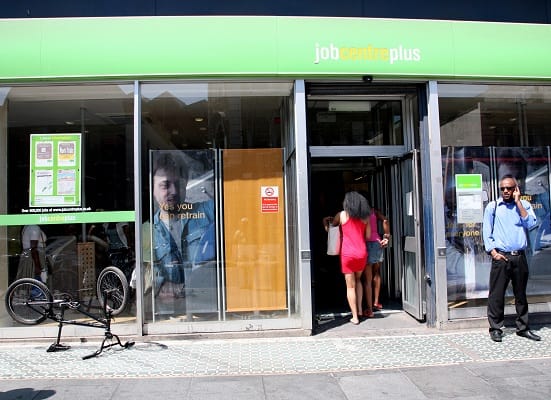Securing residency in the UK offers numerous benefits, from access to world-class education and healthcare to a stable economic environment. For those looking to make the UK their home, investment offers an exciting pathway. Two primary avenues stand out: real estate and business ventures. Each offers unique advantages and challenges, catering to different investor profiles and goals. This article explores these options, helping you decide which path aligns best with your aspirations.
The gateway to UK residency: Understanding your options
The UK provides several programs under the umbrella of UK residency by investment, commonly known as the Tier 1 Investor Visa. This program is designed for high-net-worth individuals looking to invest a significant amount of capital in the UK. The choice between investing in real estate or starting a business is crucial and can significantly impact your residency journey. Understanding these pathways is the first step towards making an informed decision about your future in the UK.
Real estate investments: Building your future in the UK
Investing in UK real estate is an appealing option for many seeking residency. The property market in the UK is robust, offering diverse opportunities ranging from residential properties in London to commercial real estate across the country.
Advantages of real estate investment:
- Stable returns: Historically, UK real estate has provided consistent returns, with property values appreciating over time.
- Tangible asset: Real estate is a physical asset, offering a sense of security to investors.
- Rental income: Investors can generate a steady income stream by renting out properties, providing both immediate and long-term financial benefits.
Risks of real estate investment:
- Market fluctuations: Property values can be volatile, influenced by economic and political factors.
- Management responsibilities: Owning property requires ongoing management and maintenance, which can be time-consuming and costly.
Diving into business ventures: The entrepreneurial route to residency
For those with an entrepreneurial spirit, starting or investing in a UK business can be a rewarding path to residency. The UK boasts a vibrant business ecosystem, making it an attractive destination for innovative ventures.
Pros of business ventures:
- Economic contribution: Investing in a business contributes directly to the UK economy, creating jobs and fostering innovation.
- Higher returns: Successful businesses can yield significant returns, potentially outpacing real estate investments.
- Control and influence: Business investors often have more control over their investments compared to real estate.
Cons of business ventures:
- Higher risk: Business ventures carry inherent risks, including market competition and operational challenges.
- Regulatory compliance: Navigating the UK’s business regulations can be complex and requires careful attention.
Real estate vs. business ventures: Which path to residency is right for you?
Choosing between real estate and business ventures depends on your personal preferences, risk tolerance, and long-term goals.
Key considerations:
- Investment amount: Real estate investments typically require substantial upfront capital, while business ventures may allow for more flexible investment sizes.
- Risk tolerance: Real estate generally offers more stability, whereas business ventures can be riskier but potentially more lucrative.
- Involvement level: Consider how hands-on you want to be with your investment. Real estate might require less day-to-day involvement than running a business.
Counting the costs: Financial insights and ROI for investors
Understanding the financial implications of each investment option is crucial.
Real estate financials:
- Initial costs: Include property price, legal fees, and taxes.
- Ongoing costs: Maintenance, property management, and taxes.
- Returns: Capital appreciation and rental income.
Business financials:
- Initial costs: Business acquisition or startup costs, legal fees.
- Ongoing costs: Operating expenses, salaries, and compliance costs.
- Returns: Profits from business operations and potential for growth.
Navigating the legal maze: Understanding UK regulations
Both real estate and business investments require navigating the UK’s legal and regulatory environment.
Real estate regulations:
- Ownership laws: Ensure compliance with property ownership laws, including any restrictions for foreign investors.
- Taxation: Understand property taxes, including Stamp Duty Land Tax and Capital Gains Tax.
Business regulations:
- Business structure: Choose the appropriate business structure (e.g., sole trader, partnership, corporation).
- Compliance: Adhere to regulations regarding employment, taxation, and industry-specific laws.
Inspiring success stories: Real people, real investments, real results
Real-life examples can offer valuable insights into the investment journey.
Real estate success story:
- Case study: A family invests in a portfolio of rental properties in Manchester, generating steady rental income while securing residency. Over five years, property values increase by 25%, offering significant capital gains.
Business venture success story:
- Case study: An entrepreneur launches a tech startup in London, attracting venture capital and creating 50 jobs. The business’s growth leads to increased profits and ultimately, permanent residency.
Overcoming obstacles: Tackling challenges and risks
Investing in either real estate or business ventures presents challenges that must be addressed.
Real estate challenges:
- Market downturns: Develop strategies to weather economic fluctuations, such as diversifying your property portfolio.
- Property management: Consider hiring professional management to handle day-to-day operations.
Business challenges:
- Competition: Differentiate your business to stand out in a competitive market.
- Regulatory Changes: Stay informed about changes in laws and regulations that could impact your business.
Making your residency dreams a reality
Choosing between real estate and business ventures as a pathway to UK residency requires careful consideration of your financial situation, risk appetite, and personal interests. Both options offer unique benefits and challenges, and the right choice depends on aligning these factors with your long-term residency goals.
For those seeking stability and tangible assets, real estate provides a solid foundation. Meanwhile, entrepreneurial spirits may find greater satisfaction and potential rewards in business ventures. Regardless of the path chosen, a well-informed decision backed by thorough research and professional advice will pave the way to achieving your UK residency dreams.








